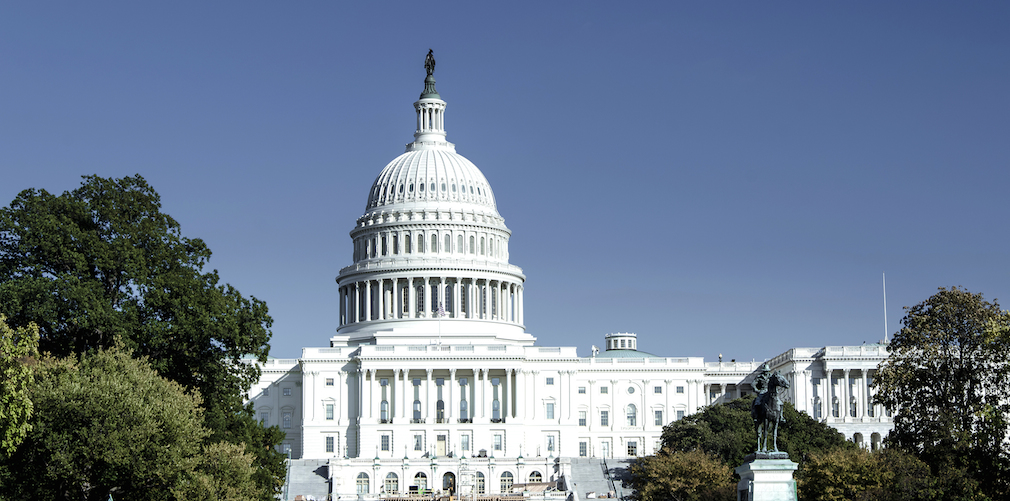On Monday, a coalition of eight senators — seven Democrats and one Independent — submitted a letter to Federal Housing Finance Agency (FHFA) Director Sandra Thompson, urging her to phase in a series of modernized energy-efficiency standards for mortgages backed by the government-sponsored enterprises (GSEs) Fannie Mae and Freddie Mac.
The signatories include Sens. Cory Booker (D-N.J.); Martin Heinrich (D-N.M.); Ed Markey (D-Mass.); Bernie Sanders (I-Vt.); Jeanne Shaheen (D-N.H.); Chris Van Hollen (D-Md.); Elizabeth Warren (D-Mass.); and Peter Welch (D-Vt.).
“We are writing to urge the [FHFA] to phase in a minimum energy efficiency standard for Enterprise-backed mortgages on new homes,” the senators wrote in their letter. “Such a standard would save homeowners and renters money and make the housing market more consistent and stable.”
The senators cite an interaction they had with Thompson at a Senate Banking Committee hearing earlier this year, where she signaled “an intention to make a decision about this potential action on or about the end of the second quarter,” the senators wrote.
“As we are now rapidly approaching the end of the third quarter, we respectfully request an update on your intended timeline for a decision and for the Enterprises to begin implementation.”
Earlier this year, the U.S. Department of Housing and Urban Development (HUD) and the U.S. Department of Agriculture (USDA) reached an accord on new energy-efficiency standards for the construction of new single-family and multifamily homes.
The move aimed to fulfill a requirement laid out in a 2007 law that directs the departments to adopt the most recently published energy-efficiency standards following reviews by the U.S. Department of Energy (DOE) and HUD itself. The senators would like to see these standards implemented by FHFA, but they also said the agency had the opportunity to go even further in its discretion.
“FHFA has the opportunity to match or exceed the standards recently adopted by [HUD] and [USDA] for their residential mortgage programs,” the letter stated. “This action would support consistency and further the expansion of resilient, energy-saving construction practices across the housing market.”
The senators argue that new energy-efficiency standards would positively impact the housing market for working families. This is in spite of a potentially high upfront cost that would be required to properly retrofit existing structures to conform with the new standards, as well as the potentially higher upfront costs for new construction.
“HUD and USDA found that the increased initial costs of construction are more than made up for by lower monthly energy costs,” the letter stated. “For a typical home purchased with a 30-year mortgage, energy bill savings more than make up for small increases to down payments and monthly mortgage payments. High-performance homebuilders and multifamily property developers in diverse markets have found the incremental up-front costs of at- or above-code performance to be closer to 1% or, in some cases, negative.”
Updated codes also help to save lives by “protecting families from the impacts of extreme weather events, particularly utility outages during heat waves and cold snaps,” according to the letter. “Updated energy codes can also yield better indoor air quality and reduce exposure to pollutants that can have negative health impacts including asthma, heart disease and lung cancer.”
In August, a coalition of consumer groups also urged FHFA to adopt these updated standards. They claimed that residents of single-family homes could see a savings of more than $15,000 over a 30-year period, and that multifamily complexes could save nearly $6,000 on a per-unit basis in that same period of time.
But the potentially high upfront costs associated with these standards was also recently targeted by senators from the other side of the aisle. Nine Republicans, led by outgoing Indiana Sen. Mike Braun, sponsored a new bill that would roll back these rules.
“Buying a home is more expensive than ever for Americans,” Braun said in a statement provided to HousingWire in August. “We shouldn’t be making them even more expensive with government mandates that could add as much as $31,000 to the price of a new home. My bill will repeal this new Biden administration mandate so we can lower the cost of housing for American families.”





